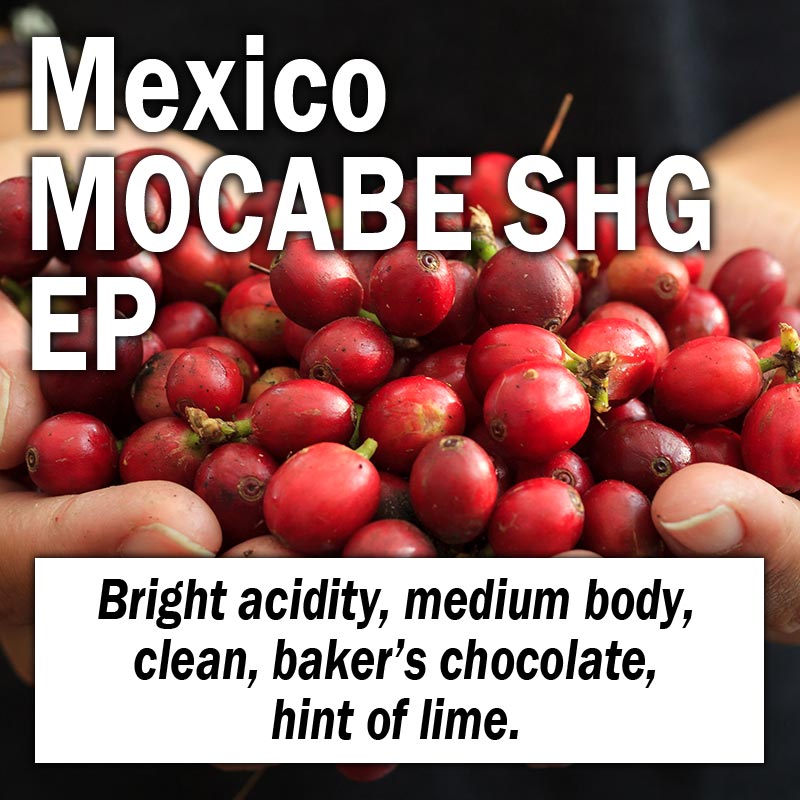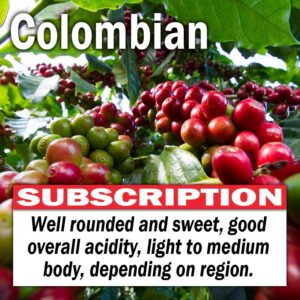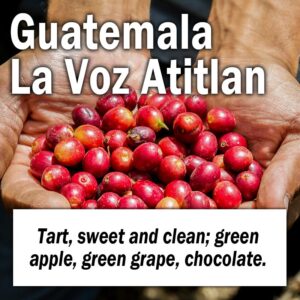Description
ABOUT THE CO-OP
In 1999, a group of farmers in the municipality of Motozintla de Mendoza, in Chiapas, Mexico, began working together, and in 2000 they officially formed the Movimiento Campesiono de Delisario SPR de R.L. cooperative — or more simply, MOCABE.
They founded MOCABE as a Social Solidarity Society (SSS), a legal distinction, making clear that the intention of the group is to be a source of social and environmental improvement. Founding tenets for MOCABE were to provide:
- access to credit loans for producers;
- better coffee prices;
- new opportunities for particularly smallholder producers;
- and to reduce pollution levels and so improve the health of coffee farmers and their families.
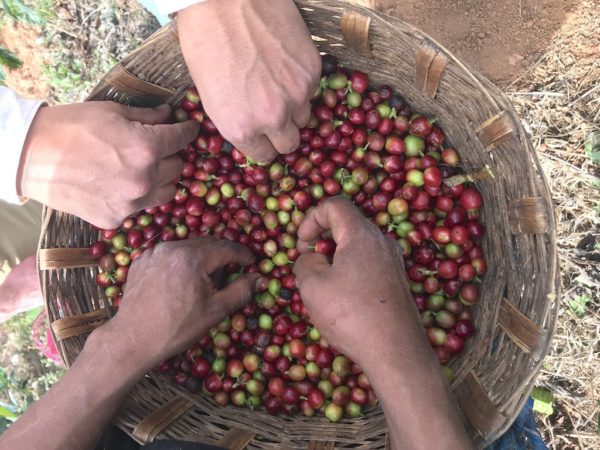
In 2000, MOCABE sought outside help to develop an internal control system for organic production, and in 2004 it became a certified National Organic Program (NOP) by Organic Crops Improvement International (OCIA).
In 2010, MOCABE was able to build its own facility, a coffee warehouse and office in the community of Belisario Dominguez, as well as purchase two trucks with respective capacities of 2.5 metric tons.
Today, 501 members farm 935 hectares and have brought economic, social and environmental improvements to their communities. Looking ahead, their next goal is to achieve Fair Trade Organic certification, to further increase the prices available to members.
ABOUT MOCABE’s MEMBERS
According to Exportadora de Café California, our sister exporting group that works with MOCABE, members of the co-op call themselves “Mochós,” a word that roughly means, “there’s nothing here.” The story goes that when Spanish colonizers arrived and asked the name of the place, the local people replied, “Mochó, mochó!”
They are also known as Motozintlecos—though this word is sometimes confused with the people who come from Motozintla.
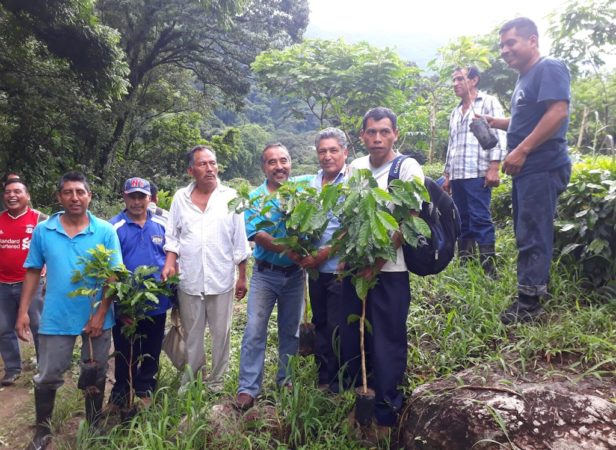
Every March, there´s an important commercial fair in Motozintla, and people arrive from all around to purchase and exchange. Mochó people are small farmers, and they participate, many selling not just crops but “petates,” homemade bedrolls that are woven from the fibers of palm trees — specifically, palma de patate, known commonly in the United States as the key thatch palm.
The Mochó exchange their products with nearby communities in Mexico and Guatemala, which helps to bring in needed household money.
ABOUT THIS COFFEE
This 2018 MOCABE SHG EP Organic (strictly high grown, European preparation) was harvested between December 2017 and March 2018. Each producer washed his or her own coffee, dried it in the sun on patios and then delivered it to the co-op.
Cupping notes: Bright acidity, medium body, clean, baker’s chocolate, hint of lime.
| Region |
| Motozintla de Mendoza municipality of the Chiapas region in Mexico |
| Growing Altitude |
| 1,350 masl |
| Arabica Variety |
| Bourbon, Caturra, Catuaí |
| Harvest Period |
| December – March |
| Milling Process |
| Washed, sun-dried on patios |
| Aroma |
| Nutmeg, clove |
| Flavor |
| Baker’s chocolate, hint of lime |
| Body |
| Medium |
| Acidity |
| Bright |
